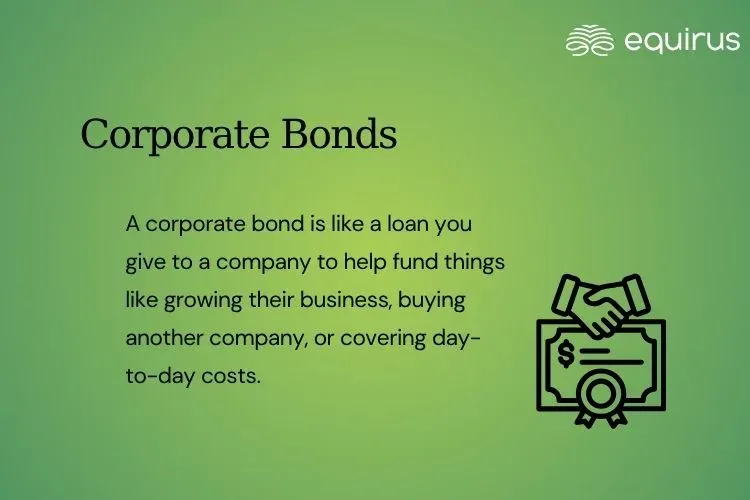Corporate Bonds

Key Highlights
-
A corporate bond is like a loan you give to a company to help fund things like growing their business, buying another company, or covering day-to-day costs.
-
Types of corporate bonds includes investment grade vs. high-yield, callable vs. non-callable and fixed vs. floating rate.
What is Corporate Bond?
A corporate bond is like a loan you give to a company to help fund things like growing their business, buying another company, or covering day-to-day costs. In return, the company pays you interest regularly and gives back the loan amount when the bond matures.
Key Features
-
Coupon: The interest you get paid regularly (could be monthly, every few months, or yearly).
-
Face Value (Par Value): The amount you get back when the bond matures or if the company decides to pay it off early.
-
Maturity Date: The day the company pays back the full loan amount.
Types of Corporate Bonds
-
Investment Grade vs. High-Yield: Investment-grade bonds are safer. They might not offer high returns, but they’re more dependable and come with lower risk. High-yield bonds, on the other hand, carry higher risk but come with the potential for greater returns.
-
Callable vs. Non-Callable: Callable bonds can be paid off early by the company; non-callable bonds stick around until maturity.
-
Fixed vs. Floating Rate: Fixed-rate bonds pay the same interest every time; floating-rate bonds adjust interest based on market rates.
